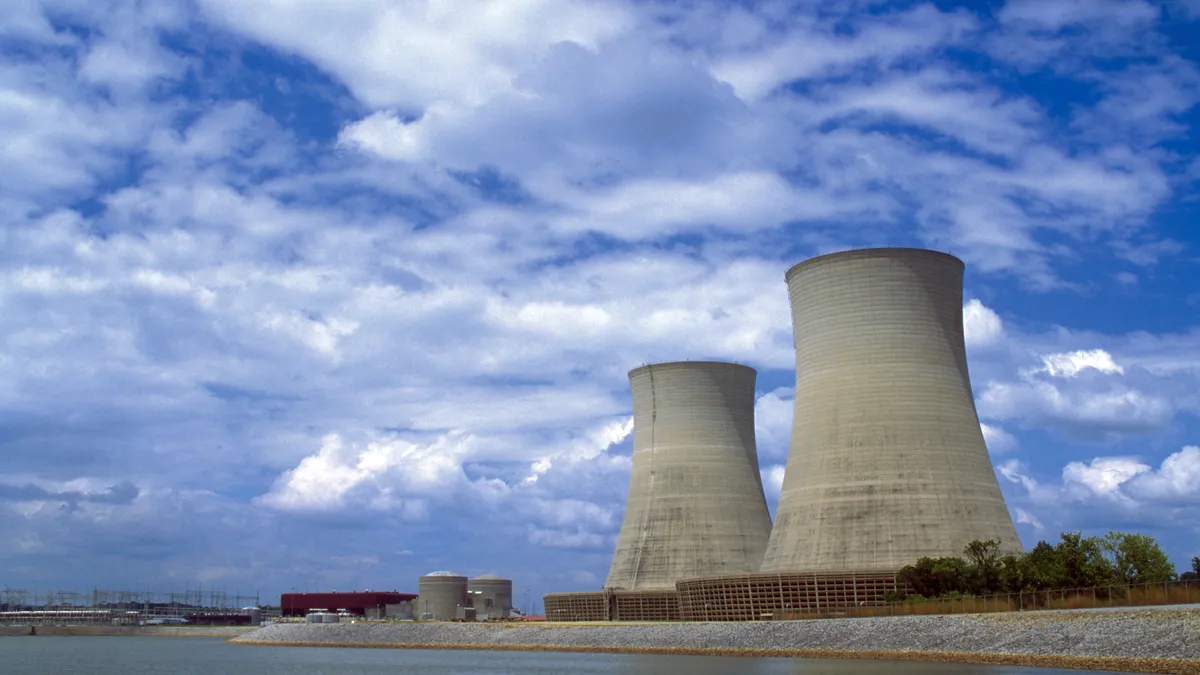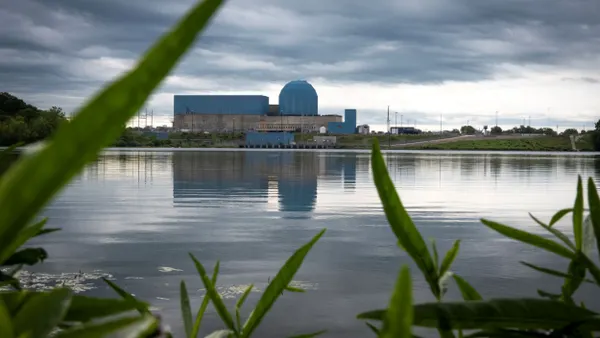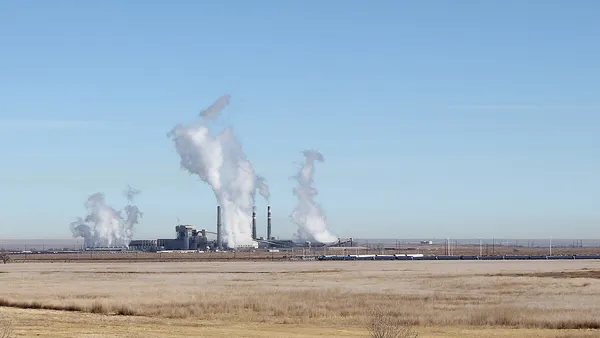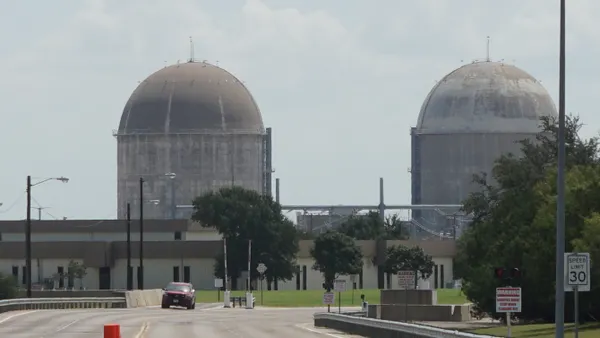Dive Brief:
-
The Federal Energy Regulatory Commission on Thursday cemented its jurisdiction over carbon pricing within wholesale markets, confirming that it does have the authority to approve such rules if brought forward by grid operators.
-
FERC's statement also praised the potential of such a policy to improve the efficiency and transparency of wholesale markets. "This commission encourages efforts to develop wholesale market rules that incorporate a state-determined carbon price in [wholesale] markets," Chairman Neil Chatterjee said during the commission's open meeting Thursday. He also clarified the policy statement "is not in any way, shape, or form, an effort by FERC to take proactive action to set a carbon price."
-
Commissioner James Danly dissented in part on the commission's move to issue the policy statement. "I believe that the issuance of a policy statement on this subject is unnecessary and unwise as a matter of discretionary action," he said during the meeting.
Dive Insight:
A range of legal experts agreed during FERC's October technical conference that the commission does have the authority to implement a carbon price if brought forward by a regional transmission operator or independent system operator (ISO). Consensus was less clear on whether the commission had the authority to pursue a carbon price unilaterally, with most experts agreeing it would be a risky policy move and potentially a stretch of authority.
FERC's policy statement is the first bipartisan statement of its kind issued by the commission, according to Chatterjee.
"Today's action is no small feat. The topics surrounding mitigating carbon emissions can often become highly politicised and divisive. However, we've taken on a really complex issue, looking at it just within our jurisdictional boundaries, and we've found sensible areas of agreement," he said.
Currently the New York ISO is the only grid operator with a carbon pricing mechanism in the works, and it is still waiting on final consensus from the state over whether it will move forward.
FERC's technical conference on carbon pricing was held in response to a broad stakeholder request to examine the issue further. Competitive power producers including Vistra Energy and NextEra Energy, as well as gas and clean energy interests all filed a request with the commission in April to convene the discussion.
Some stakeholders including the Electric Power Supply Association and American Wind Energy Association praised the commission for its stance. But others criticized the commission for taking "baby steps" on one clean energy policy, while seeming to take a larger step against renewables in a separate order on the PJM Interconnection's compliance filing on the commission's December rule expanding the Minimum Offer Price Rule (MOPR).
"While we’ll need to see future orders on compliance to determine the precise severity of this action, renewable energy investment decisions in the Mid-Atlantic region are already impacted by the MOPR, and preferential treatment for fossil fuel generators will only grow in subsequent auctions as costs for renewable power continue to decline," American Council on Renewable Energy President and CEO Gregory Wetstone said in a statement.
Danly argued in his dissent that it was unwise for FERC to issue a policy statement on the mechanism before seeing the details of a proposal.
"Generally speaking, it's preferable to wait to be in receipt of tariff filings, especially when you're forging new programs like this," he said. "It's certainly premature to opine on jurisdictional questions when we are denied the benefit of actually seeing details of what might be proposed." But he concurs in part on the order, finding the bulk of the statement to be legally sound.
"The substance of the policy statement really boils down to little more than affirmation that utilities still enjoy the right to file under Section 205 to proposed tariff revisions," he said, which is "fine as a matter of legal statement, I suppose. But, again, unnecessary."
The commission's policy statement also opens up a comment period on the issue. Comments are due on or before Nov. 16. Reply comments are due on or before Dec. 1.














